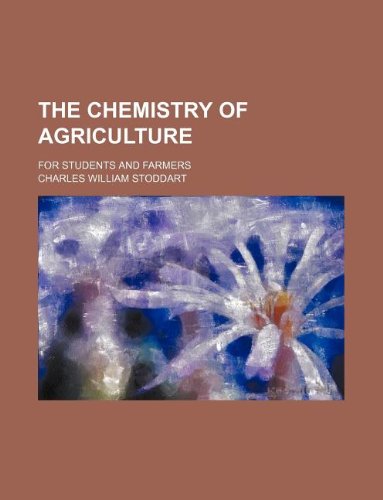This historic book may have numerous typos and missing text. Purchasers can download a free scanned copy of the original book (without typos) from the publisher. Not indexed. Not illustrated. 1915 Excerpt: ...magnesium give a water "temporary" hardness, because they decompose easily on aeration or boiling and precipitate the carbonates. The sulphates of calcium and magnesium give water "permanent" hardness, since they are not so easily precipitated. Of course in the case of drainage and river waters there is a very wide variation in the content of dissolved material, just as there is in the film water. A granitic or sandy country will yield water that is very "soft" or almost pure, whereas a limestone country gives just the opposite. Take two fresh water lakes in Wisconsin, for example. One--Devil"s Lake--receives the drainage from a granitic region, the other--Lake Mendota--receives that from a limestone country. Table X gives the analyses of both lakes. Table X.--Composition Of Lakes. (Expressed in parts per million.) Fe2Oi Sid, Al.O, CaO MgO SO, Cl Lake Mendota 1.1 0.8 40.1 42.3 10.3 2.0 Devil"s Lake 2.2 0.6 4.5 1.8 6.7 8.2 143. Soil-forming Rocks.--To obtain some idea of the composition of a soil, it is necessary to know something of the rocks from which the soil is derived. Rocks are mineral aggregates, that is, they are composed of two or more minerals welded together either by heat or pressure. They are classified as igneous, formed by the cooling of molten masses; sedimentary, laid down by water; and metamorphic, changed by heat and pressure from their original forms. Knowing the rocks in a general way will give an idea of the minerals to be expected in a soil derived from any given rock, and also the character of the compounds resulting therefrom. This applies, of course, only to soils in place. Soils that have been transported by water have been sorted more or less according to the specific gravity of their various constit... Это и многое другое вы найдете в книге The chemistry of agriculture; for students and farmers (Charles William Stoddart)
The chemistry of agriculture; for students and farmers Charles William Stoddart
Подробная информация о книге «The chemistry of agriculture; for students and farmers Charles William Stoddart». Сайт не предоставляет возможности читать онлайн или скачать бесплатно книгу «The chemistry of agriculture; for students and farmers Charles William Stoddart»
